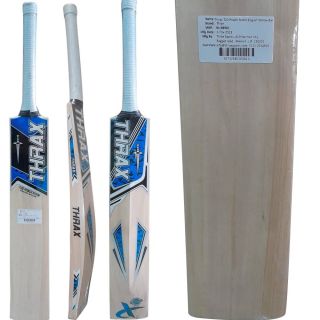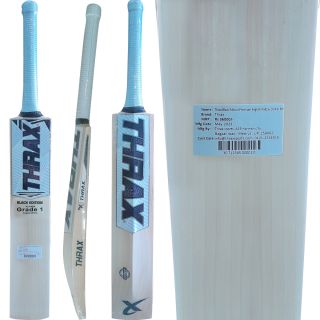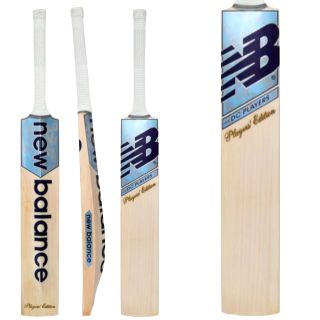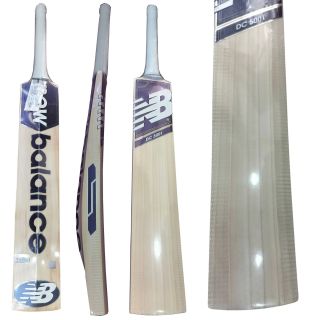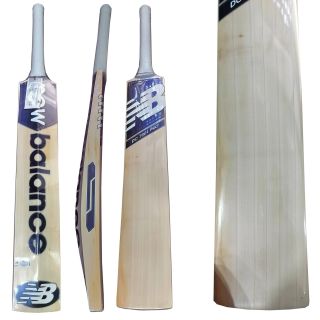- Cricket
Shop by Category
- Cricket Bat
- Cricket Shoes
- Cricket Accessories
- Cricket Batting Gloves
- Cricket Kit Bag
- Cricket Thigh Guards
- Cricket stumps
- Cricket guards
- Cricket Batting Pads
- Cricket Keeping Gloves
- Cricket Ball
- Cricket Chest Guards
- Cricket Helmet
- Cricket Keeping Pads
- Cricket Bat Grip
- Cricket Clothing
- Cricket Ball Thrower
- Cricket Kit Set
- Cricket Score book
- Cricket Mats
- Cricket Elbow Guards
- Tennis Cricket Ball
- Custom Made Bat
- Cricket Practise Bat
- Badminton
- Tennis
- Table Tennis
- Running $ Jogging Shoes
- skating
Shop By Category
- Swimming
Shop By Brands
- Football
- Squash
Shop By Category
- Carrom
Shop By Category
- Boxing
Shop By Category
Cricket-Bat
- SS DRE RUSS Kashmir Willow Cricket Bat₹5,400.00 Special Price ₹3,942.00 SAVE 27%
- Thrax Proto 11 Grade 1 Kashmir Willow cricket bat Standard Size₹4,200.00 Special Price ₹2,090.00 SAVE 50%
- Thrax Black Edition Premium English Willow Cricket Bat₹42,000.00 Special Price ₹19,990.00 SAVE 52%
- New Balance DC Players Edition Cricket Bat₹121,999.00 Special Price ₹103,999.00 SAVE 15%
- Gray Nicolls GN4 DELTA 3.0 English Willow Cricket Bat Size SH₹15,949.00 Special Price ₹12,600.00 SAVE 21%
- Gray Nicolls GN4 GEM English Willow Cricket Bat Size SH₹15,949.00 Special Price ₹12,600.00 SAVE 21%
- Gray Nicolls Cobra GN4.5 English Willow Cricket Bat Size SH₹17,599.00 Special Price ₹13,890.00 SAVE 21%
- GN5 Supra English Willow Cricket Bat SH₹18,699.00 Special Price ₹14,959.00 SAVE 20%
- Gray Nicolls Colossus GN5 English Willow Cricket Bat Size SH₹19,249.00 Special Price ₹15,399.00 SAVE 20%
- Gray Nicolls Supra Beast English Willow Cricket Bat Size SH₹21,449.00 Special Price ₹17,159.00 SAVE 20%
- Gray Nicolls Megapower GN7 English Willow Cricket Bat₹30,799.00 Special Price ₹23,715.00 SAVE 23%
- Gray Nicolls Supra Players Edition Adult Cricket Bat₹54,999.00 Special Price ₹43,999.00 SAVE 20%
- Gray Nicolls Players Profile English Willow Cricket Bat₹84,999.00 Special Price ₹66,703.00 SAVE 22%
- Kookaburra Kahuna Pro 3.0 English Willow Cricket Bat₹24,499.00 Special Price ₹18,864.00 SAVE 23%
- New Balance DC 500 i English Willow Cricket Bat₹11,499.00 Special Price ₹9,774.00 SAVE 15%
- New Balance DC 700 i Pro English Willow Cricket Bat₹19,999.00 Special Price ₹16,399.00 SAVE 18%
- New Balance TC 700 i Max English Willow Cricket Bat₹17,999.00 Special Price ₹14,759.00 SAVE 18%
India's Largest Collection of English and Kashmir Willow Bats with Customization Options:
Cricket in India is growing rapidly, fueled by the victory in the 2023 T20 World Cup and the increasing popularity of the IPL. Every young Indian dreams of becoming a cricket player. With over 12 years of experience in the sports e-commerce industry, Khelmart.com offers the following key benefits for your shopping experience:
Khelmart ensures a constantly updated inventory of English willow bats.This ensures optimal moisture levels in the bats, resulting in superior performance.
Operating from the sports hub of Meerut, Khelmart has access to an extensive network of manufacturers and wholesalers, enabling buyers to receive the latest, high-quality products.
With a carefully hand picked selection, Khelmart provides an excellent range of cricket bats to meet players' diverse needs.
Khelmart also offers a wide variety of Kashmir willow bats from top brands like SS and SG, with prices ranging from ₹1,700 to ₹5,000. This collection includes premium Grade 1 Kashmir willow bats, ensuring quality and value for every player.
Explore India’s Largest Collection of Grade 1 English Willow Bats:
Khelmart offers a complete range of professional Grade 1 English willow bats, priced between Rs 40,000/- and Rs 80,000/-. Whether it's the SS Super Select, SS DRE RSS, SG HP 33, or SG RP 17, Khelmart ensures each bat is carefully packed after thorough quality checks. These include verifying bat weight, grain structure, moisture levels, and optimal weight-to-edge ratio for peak performance.
Here are few top end Profession Grade 1 English willow bats:
| SS Ton gladiator | Click here to get latest Price |
| SG RP 17 | Click here to get latest Price |
| SF Almandus Players | Click here to get latest Price |
| Thrax Platinum Maximus | Click here to get latest Price |
| Gray Nicolls Legend Gn 10 | Click here to get latest Price |
Mid-range English willow bats for players looking to enhance their skills and performance:
While Grade 1 English willow bats can be expensive, players can also explore Grade 3 and Grade 4 English willow bats at more affordable price points. Players with a budget of ₹2,000 to ₹3,000 will find excellent mid-level English willow bats at Khelmart.
Here are some of the high-performance mid-level English willow bats available:
| SS Master 7000 | Click here to get latest Price |
| SG Sunny Tonny Icon | Click here to get latest Price |
| Thrax Roar Ultimate | Click here to get latest Price |
| BDM Dynamic Power Super | Click here to get latest Price |
| SF Almandus 10000 | Click here to get latest Price |
Kashmir willow bats for those who wants to explore the skill with leather and tennis balls:
English willow bats can be quite expensive for the average Indian player, making Kashmir willow bats a great alternative for club and recreational-level players. Kashmir willow offers an affordable range and, when properly manufactured, can deliver solid performance.The only drawback of Kashmir willow bats is their weight-to-edge ratio.
Here are some of the top selling kashmir willow bats available:
| SS SKY Flicker Kashmir Willow | Click here to get latest Price |
| SG RP Pro Kashmir Willow | Click here to get latest Price |
| Thrax Proto 11 Kashmir Willow | Click here to get latest Price |
| SM Spark Kashmir Willow | Click here to get latest Price |
| New Balance DC 150i Kashmir | Click here to get latest Price |



